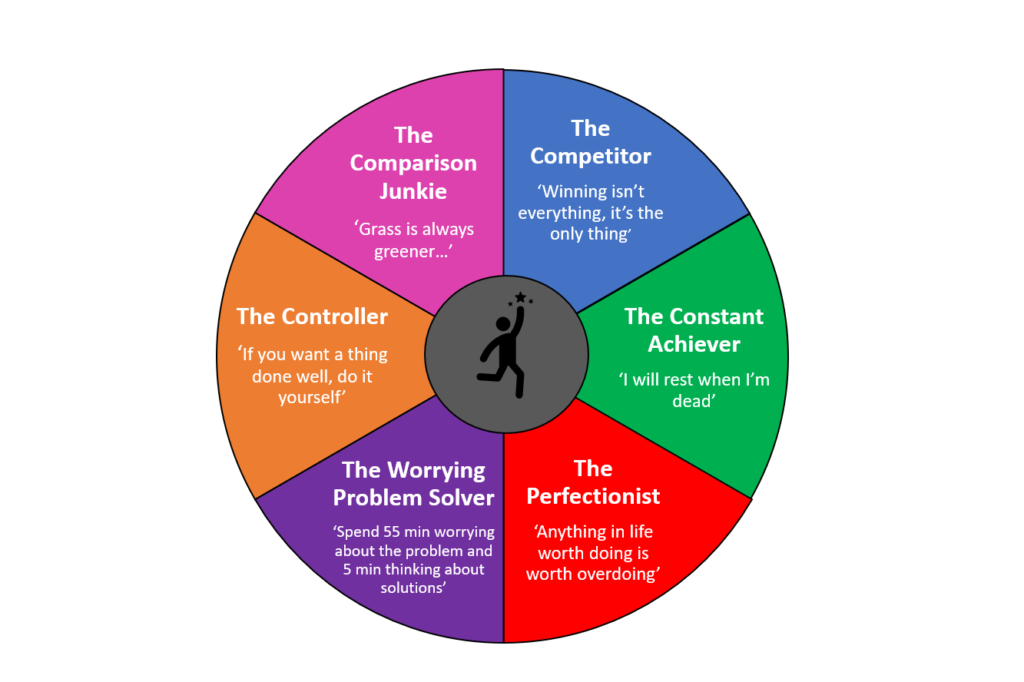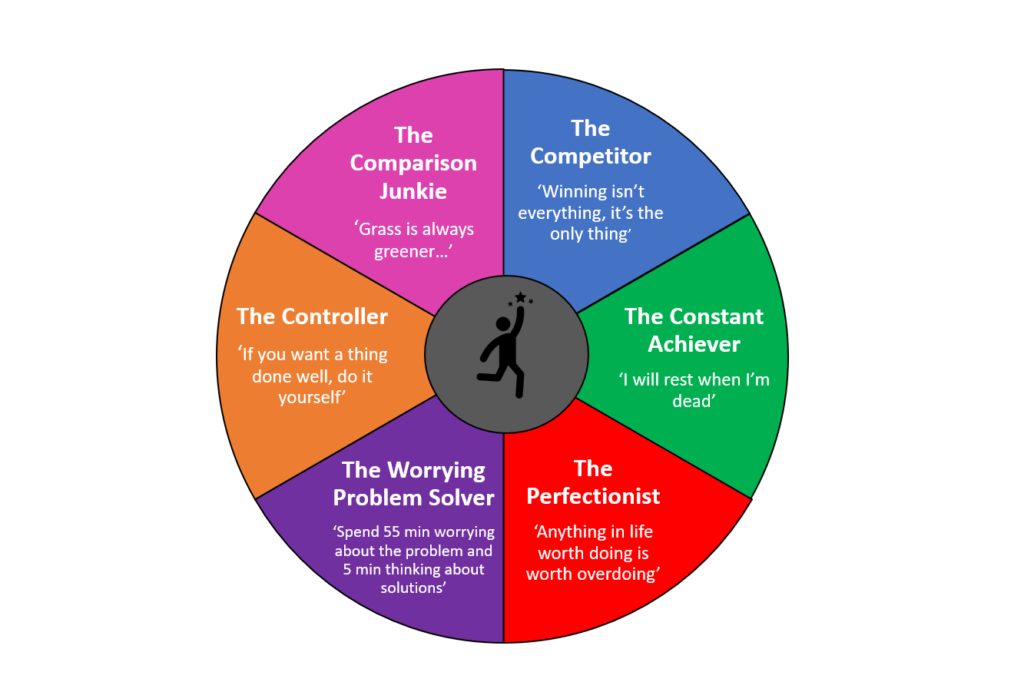Motto: ‘If you want a thing done well, do it yourself’
Achievement by control is about keeping a close eye on everything and everyone around you. If you identify with the Controller archetype you probably know exactly what will happen on Tuesday in 3 weeks and love writing lists and plans.
You prefer to take care of most things yourself and delegation and collaboration could be a challenge for you. The Controller can have a hard time dealing with unexpected events.
Due to their challenge with collaboration and delegation, Controllers risk losing valuable input and inspiration from people around them. In extreme cases they could end up alienating colleagues and friends.
Drivers and Fears:
-
-
- Fear of losing control
- Fear of uncertainty
- Will to succeed
-
How to overcome:
-
-
- Educate yourself about anxiety and control. Rather than falling back on control as a defense against uncertainty, learn all you can about the fear that is driving you to micromanage. Read books or see a therapist.
-
2. Ask yourself how effective controlling really is. For example, is asking your teenage son whether he’s brushed his teeth every morning an effective way to make him take responsibility for his dental care? If not, stop and rethink your approach.
3. Ban control-oriented language from your vocabulary. For example, unsolicited advice or criticizing someone’s perspective. Altering your language takes courage, and you must commend yourself for learning how to let go of control.
What advise would you give a Controller? If you identify as one, how do you overcome your need to control?
Next up: The worrying problem solver








